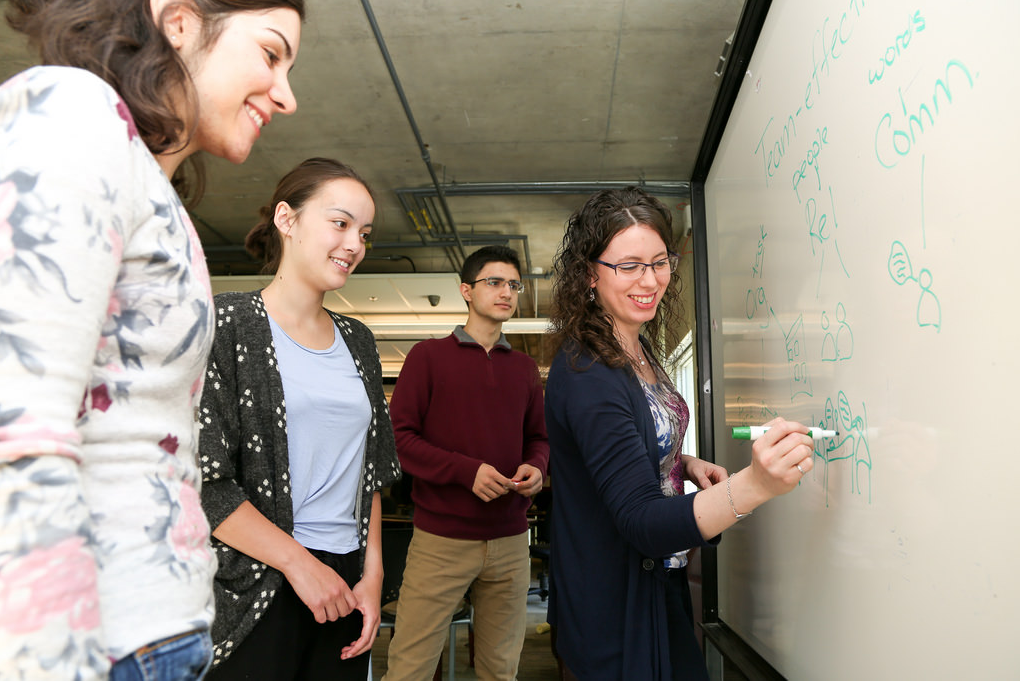PhD Candidate, Patricia Sheridan, and her supervisors, Greg Evans and Doug Reeve have published a study with the Higher Education Quality Council of Ontario on Teaching Team-effectiveness in Large Classes. Based on research conducted with the first-year Engineering Science class in Winter 2012, this report outlines the differences in the effects of structured and unstructured feedback on student learning of teamwork in design-project teams.
This study forms one of the foundation blocks of the Team-effectiveness Inventory (TEI) used in the Team-effectiveness Learning System (TELS). The TEI is an intra-team feedback instrument used to provide feedback to team-members on their organisational, relational, and communication behaviour during teamwork. This study split the class randomly into two groups to assess the effectiveness of the TEI; half the class provided feedback to their team members using the TEI, the other half provided unstructured feedback. This instrument was compared to unstructured feedback to determine it’s utility at providing accurate and actionable feedback when used for mid-project feedback on team member’s effectiveness in their project teams.
Key findings from this study highlight that structured feedback provides a greater breadth of strengths and weaknesses to a student, enabling them to better develop their understanding of how they operate as a team member. However, feedback from the unstructured group was found to enhance student commitment to the team as the comments demonstrated that their team members cared about them.
A newer version of the TEI that incorporates these findings is now in use in both first-year design courses, and multiple other team-learning courses across the Faculty. TELS has had great success at providing students with a way to develop their self-awareness, and understand how they influence the team’s dynamics.
The authors wish to thank all of those in the Faculty who made this research possible through allowing us access to their classes for research, and for their guidance and support.
-Patricia Sheridan

